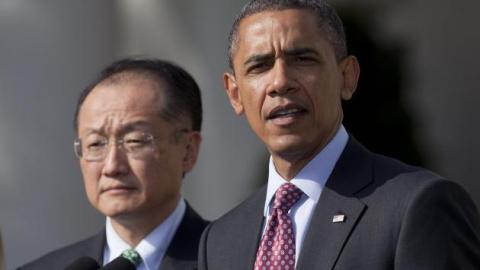Jim Yong Kim: Superstar Pragmatist

Call me a proud alum. If you haven’t yet heard of Jim Yong Kim, the Dartmouth College president nominated by Obama today to head the World Bank, then welcome to a galactic superstar in the making. Only three years into his tenure at Dartmouth, I am disappointed to potentially see Kim go, but his dynamic and pragmatic leadership and his interdisciplinary outlook on development and public health holds the potential to transform the World Bank into one of the 21st century’s most important institutions. I am particularly excited about the potential for the World Bank to continue to pursue programs that connect economic development, climate change, and public health.
The Washington Post editorializes that Kim is an “ideal choice,” opinion page editor Fred Hiatt calls him “a groundbreaking choice,” and the Post’s Ezra Klein has perhaps the best overview of Kim’s career arc and the unique qualities he brings to the job.
At Dartmouth, among initiatives, Kim grabbed my attention with his immediate pursuit of harm reduction related to college drinking and his intense passion for applying the science of human performance to college athletics, academic achievement, and the formation among students of lifelong habits related to mental, emotional, and physical well-being.
Take a look at the video below from the Dartmouth Idol series. Kim joins students about 2 minutes into the video with a rap and dance performance, turning popular pop and rap lyrics into a message about campus fun without alcohol. There are few people in the country who merge Kim’s experience, intellectual heft, and charisma. I anticipate that the World Bank is just the start of his national leadership.




